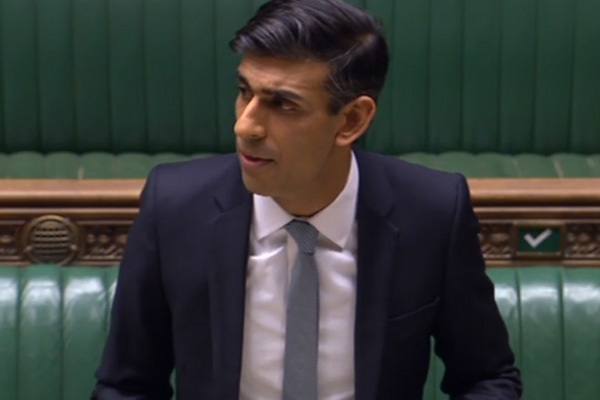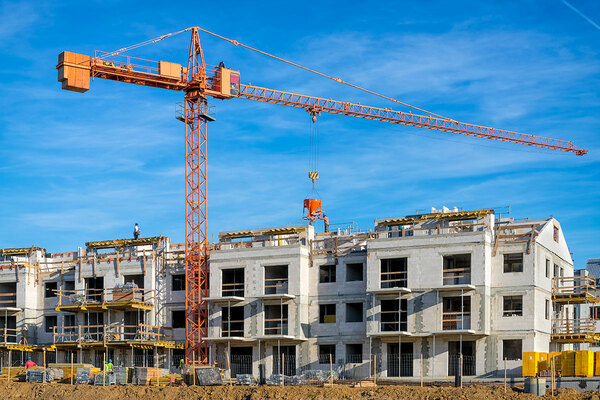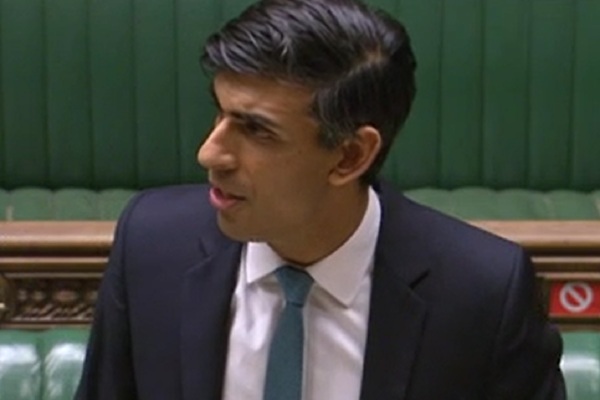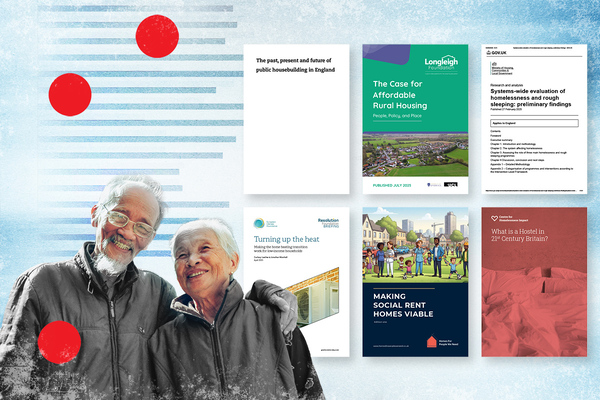You are viewing 1 of your 1 free articles
Spending Review 2020: key housing announcements at a glance
Inside Housing’s news team unpicks the chancellor’s Spending Review to look at the key housing takeaways
Today saw chancellor Rishi Sunak unveil his spending plans for the next year for this government. While much was about the post-COVID recovery, there were a number of important housing policy announcements. Here the Inside Housing news team assesses the key takeaways from the Spending Review speech and accompanying documents.
The £7.1bn National Home Building Fund
“National Home Building Fund” (NHBF) appears to be the new title for assorted government housing investment streams as part of its mission to be seen delivering a massive public spending strategy.
Of the £7.1bn on the tin, £4.8bn constitutes previously announced capital grant funding “including for land remediation, infrastructure investment and land assembly”, according to Spending Review documents.
That leaves £2.3bn of new funding to be pumped into housing over the next four years. Of this, the vast bulk will come in the form of loan finance for house builders large and very small, including those using modern methods of construction.
The remaining £100m will be handed to non-mayoral combined authorities next year to support housebuilding – including estate regeneration, releasing public sector land and remediating brownfield sites.
To be clear, the NHBF is separate to the Affordable Homes Programme, worth £12.2bn between 2021 and 2026, bringing the government’s total capital housing investment to just short of £20bn.
Further NHBF funding is promised for the next multi-year Spending Review in line with the government’s commitment to provide £10bn for housing-enabling infrastructure projects.
Changes to the Treasury’s green book
Housing groups like Homes for the North and the Northern Housing Consortium have been warning for some time that the Treasury’s green book – which sets out how decisions on major investment programmes are appraised – is biased towards the South East and London.
A review of the methodology published alongside Spending Review documents today bore out those claims, with government announcing it would rework the system.
Among the key changes was the announcement that the green book would “end the dominance of benefit cost ration decision-making” and a commitment to no longer accept “place blind” proposals.
In other words, business cases must be developed to align with relevant local strategies and “major interventions” in the area.
The government said: “These changes will mean that appraisals and advice to ministers should include much better analysis on how options will deliver their policy goals, as well as which parts of the country look to gain most from them, supporting better-informed decisions.”
Local Housing Allowance freeze
The government has promised to keep housing benefit at the level in which it would cover the lowest 30 percentile of homes in any given area for the remainder of this financial year. However, according to the Office for Budget Responsibility, the government had not specified Local Housing Allowance (LHA) rates beyond next year. Instead it has assumed that LHA would rise in line with the Consumer Price Index.
According to the watchdog, this would result in an effective freeze on LHA in real cash terms. This will mean the £1bn being spent in 2021/22 will decline to the equivalent of £840m in 2022/23 and £675m in 2023/24. In five years’ time, it would have fell to £300m in real cash terms, and well below the 30th percentile it currently sits at.
This has been criticised by the National Residential Landlords Association, which said: “Many renters and landlords are struggling with the consequence of rent arrears through no fault of their own yet the government is failing to take the action needed to address this.”
Social housing decarbonisation funding
Documents accompanying the chancellor’s speech confirmed that the government plans to spend £60m on the retrofitting of social housing next year, alongside £320m on its Green Homes Grant scheme.
Both of these initiatives were part of a £3bn commitment to the decarbonisation of buildings announced by the chancellor in July as part of his COVID-19 recovery plans. In July, the chancellor allocated £50m to a Social
Housing Decarbonisation Fund and £2bn to the Green Homes Grant, which provides homeowners and landlords with vouchers to help carry out energy improvements in their homes.
The Treasury has confirmed that the spending for 2021/22 is part of the original £3bn, but allows the schemes, which were originally supposed to end in March, to be extended for another financial year.
In the Spending Review documents, the government said it is “committed to spending £3bn on building decarbonisation”, and will review this allocation in the spring, together with how it can best deliver this agenda over the course of this parliament.
Homelessness
A further £151m was announced for 2021/22 to support the government’s Rough Sleeping Initiative and to support local authorities to prevent homelessness and rough sleeping in their area. It is in addition to the £103m announced by the chancellor earlier this year to support rough sleepers and those at risk of homelessness during the COVID-19 crisis.
The £151m increase brings the total resource funding for rough sleeping and homelessness in 2021/22 to £676m, a 60% increase compared to this year.
The Spending Review also confirmed that £87m of capital funding will be spent in 2021/22 primarily to support the delivery of long-term supported accommodation for rough sleepers.
While homelessness charities have welcomed the new funding, they have also warned that more commitments are needed if the government is to meet its manifesto commitment of ending rough sleeping within this parliament. These include a commitment to roll out Housing First nationally and to maintain the uplifts to Universal Credit introduced in response to the COVID-19 pandemic.
Help to Buy Programme to spend £5.3bn
It was Philip Hammond that announced in 2017 that the government’s Help to Buy programme would be extended until 2023.
The Help to Buy was launched under the coalition government back in 2013 and since then has seen more than 270,000 properties bought with loans secured through the programme. However, there have been questions over whether it is supporting those most in need and if it is inflating major house builders’ profits.
The Spending Review documents show that an additional £5.3bn will be funnelled through the Help to Buy Programme in the next two years, with £2.2bn in 2021/22 and £3bn in 2022/23. The Help to Buy programme is set to undergo some changes in the next round of funding.
While it will still provide loans of up to 20%, 40% in London, for first-time buyers, this time around there will be regional price limits, which will be set at 1.5 times the average house price for a first-time buyer in a given area.
The £4bn Levelling-Up Fund
Through this £4bn fund, local areas will be able to bid for up to £20m to pay for varied projects – from new museums and roads to “regenerating eyesores” and “upgrading town centres”.
Priority will be given to places “facing particular challenges, and areas that have received less government investment in recent years”, the chancellor said, with bidding for the first round of funding set to open in the new year.
To be eligible, projects must be delivered within the current parliamentary term and have local support, including from their MP.
The fund will be managed jointly by the Treasury, the Department for Transport and the Ministry of Housing, Communities and Local Government, and is intended to move away from what Mr Sunak described as a “complex and ineffective” approach taken in the past.
That may be a reference to the £3.6bn Towns Fund, which was the centre of a furore earlier this year after the National Audit Office revealed that some of England’s most deprived areas missed out while other low-priority areas were selected, with ministers making choices that did not reflect the scoring criteria set out by officials.
Sign up for our daily newsletter
Already have an account? Click here to manage your newsletters
Related stories















